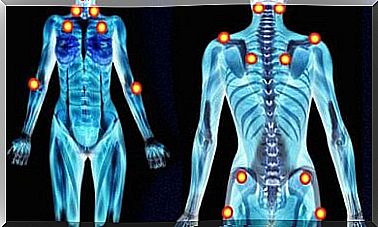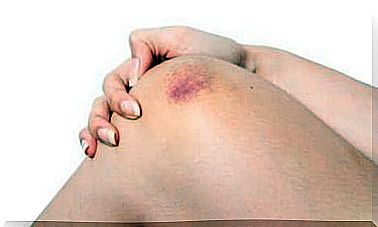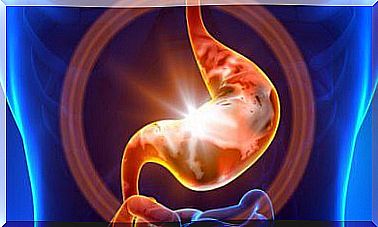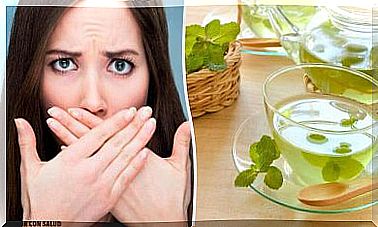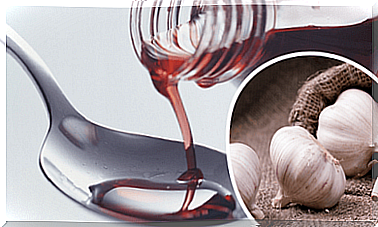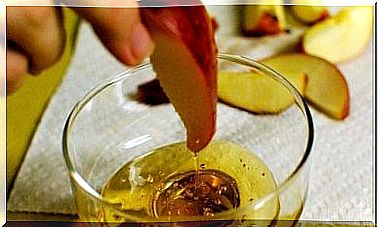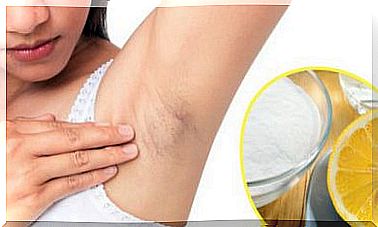6 Healthy Behaviors To Protect Your Kidneys
Are you concerned about the health of your kidneys? Do you have any risk factors that make kidney disease or kidney failure more likely? If that is the case, then today we would like to introduce you to 6 behaviors that you should incorporate into your everyday life to protect your kidneys from now on.
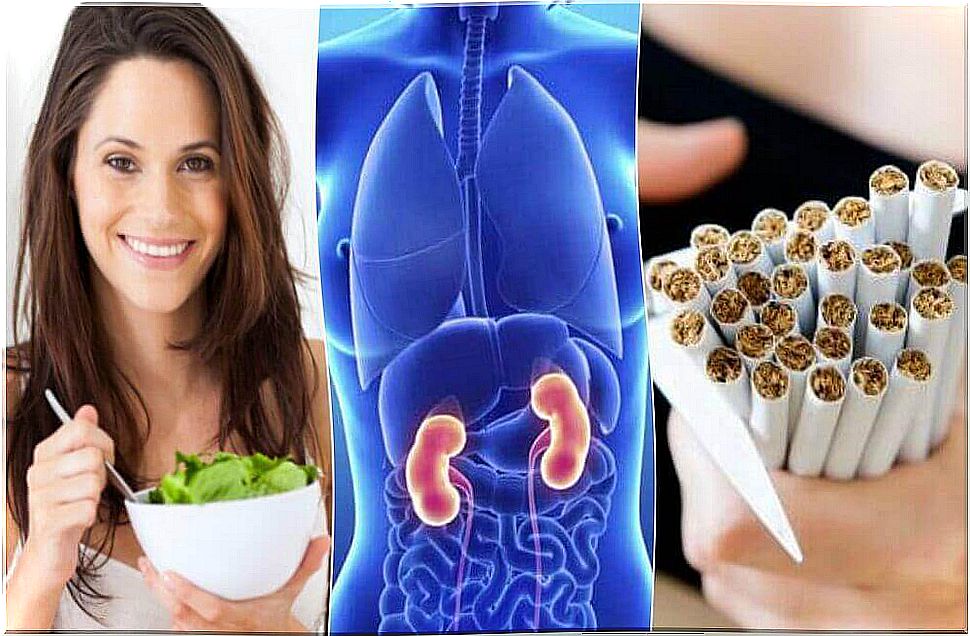
Your kidneys are organs that are shaped like big beans. Both kidneys are each the size of a fist. They’re in the middle of your back, just below your rib cage. Their function is important to your overall health, so it is necessary that you take care of your kidneys’ protection.
The kidneys cleanse your blood, making sure that it stays clean and chemical equilibrium is maintained.
They also regulate the amount of extracellular fluids, the electrolyte balance, and the pH level in your body. You can already see how important it is to protect your kidneys .
Your kidneys also have other tasks. They are involved in the production of various hormones, which among other things stimulate the formation of red blood cells. In addition, they are involved in regulating your blood pressure.
For all of these reasons, it is very important that you maintain a healthy lifestyle. This will help you ensure that your kidneys are working properly and thereby prevent disease from developing.
In today’s article we want to introduce you to 6 healthy behaviors to protect your kidneys. The best thing to do is to start integrating them into your everyday life today.
It is not difficult at all!
1. Healthy eating to protect your kidneys

While this fact is often overlooked, your eating habits have a huge impact on whether your kidneys are functioning well or poorly.
When you eat organically grown foods, you actively support your body in detoxification. On the other hand, if you eat a lot of processed foods and too much sugar, you increase your risk of getting infections or other diseases.
recommendations
- Eat more fruits and fresh vegetables.
- Increase your intake of healthy omega-3 fatty acids by eating seeds, nuts, and oily fish.
- Basically replace processed grains with whole grains.
- Limit your consumption of red meat and high fat foods.
- Basically avoid the consumption of sausage, canned meat and chips.
- Make sure you don’t consume too much salt and sugar.
2. Drink more water
It is not only necessary for healthy kidney function that you drink enough fluids every day. Since most of our bodies are made up of water, drinking enough water is essential for all important body functions.
The water is needed to remove toxins from the blood. These are then excreted in the urine and your body is detoxified.
recommendations
- Drink at least 6 to 8 glasses of water a day.
- You can also drink tea or fruit juices, or eat foods that are high in water.
- Avoid high-sugar and manufactured drinks.
3. Avoid tobacco, become a non-smoker
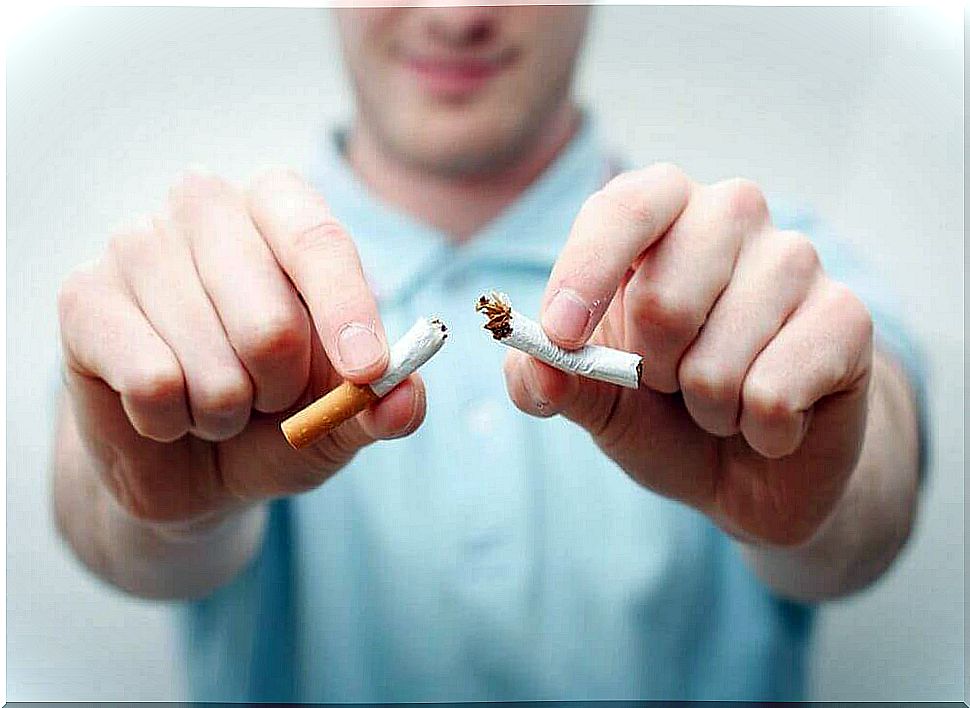
People usually think of respiratory diseases when they smoke. However, tobacco consumption is also responsible for a variety of other chronic diseases. The numerous toxins contained in cigarettes get into your entire body via the bloodstream and can damage your entire cardiovascular system and your kidneys.
In fact, smokers are up to three times more likely to have kidney failure than non-smokers.
recommendations
- Quit smoking. If you have problems with this, seek professional help. There are different options, use them.
- If you are a non-smoker, avoid being in an environment that is smoking. Passive smoking is also very harmful.
4. Take as little medication as possible
Nowadays it is common for us to treat illnesses and ailments quickly with medication prescribed by a doctor. There are also plenty of non-prescription drugs that you can easily buy.
What we often forget is the fact that uncontrolled and excessive intake of countless drugs can impair the long-term function of our kidneys. For this reason, you should pay attention to the following guidelines for taking medication.
recommendations
- Only take medication when absolutely necessary. In addition, it should always be taken under medical supervision.
- Avoid taking pain relievers, antibiotics, and over-the-counter anti-inflammatory drugs carelessly and excessively.
- If you have to take medication, always follow your doctor’s instructions. Also, watch out for unwanted side effects.
- You should definitely use natural remedies for lighter complaints .
5. Regular exercise and exercise to protect your kidneys

You can maintain a healthy body weight through regular physical exercise and sporting activities. In addition, the exercise ensures a generally improved physical and psychological well-being.
Exercise helps you to get your metabolism up. This will improve your body’s detoxification by eliminating waste that has accumulated in the blood.
At the same time, exercising can naturally lower high blood pressure and prevent fluid build-up in the body. These are two factors that can affect the way your kidneys work.
recommendations
- It is best to plan at least 30 minutes a day for your sports and exercise program.
- If you don’t have time to go to the gym, you might as well work out at home.
- Exercise at least 3 times a week.
6. Do a kidney detox
Since the kidneys are an excretory organ, they usually clean themselves when they are healthy.
However, it is often necessary that you give your kidneys additional support in order to achieve complete detoxification. Due to our current way of life and the high level of environmental pollution, as well as a very salty and high-fat diet, the accumulation of pollutants is generally very high.
recommendations
- Drink special diuretic and cleansing drinks.
- During the detox you should avoid consuming fats, sugar and salt.
- Prepare special detox smoothies and eat lots of fruit.
Are you worried about the health of your kidneys? Do you have any risk factors that make kidney disease or kidney failure more likely? If that is the case, then you should ideally incorporate the 6 behaviors into your everyday life from now on.
Of course, you should also have regular medical examinations. This can help prevent serious kidney problems.


